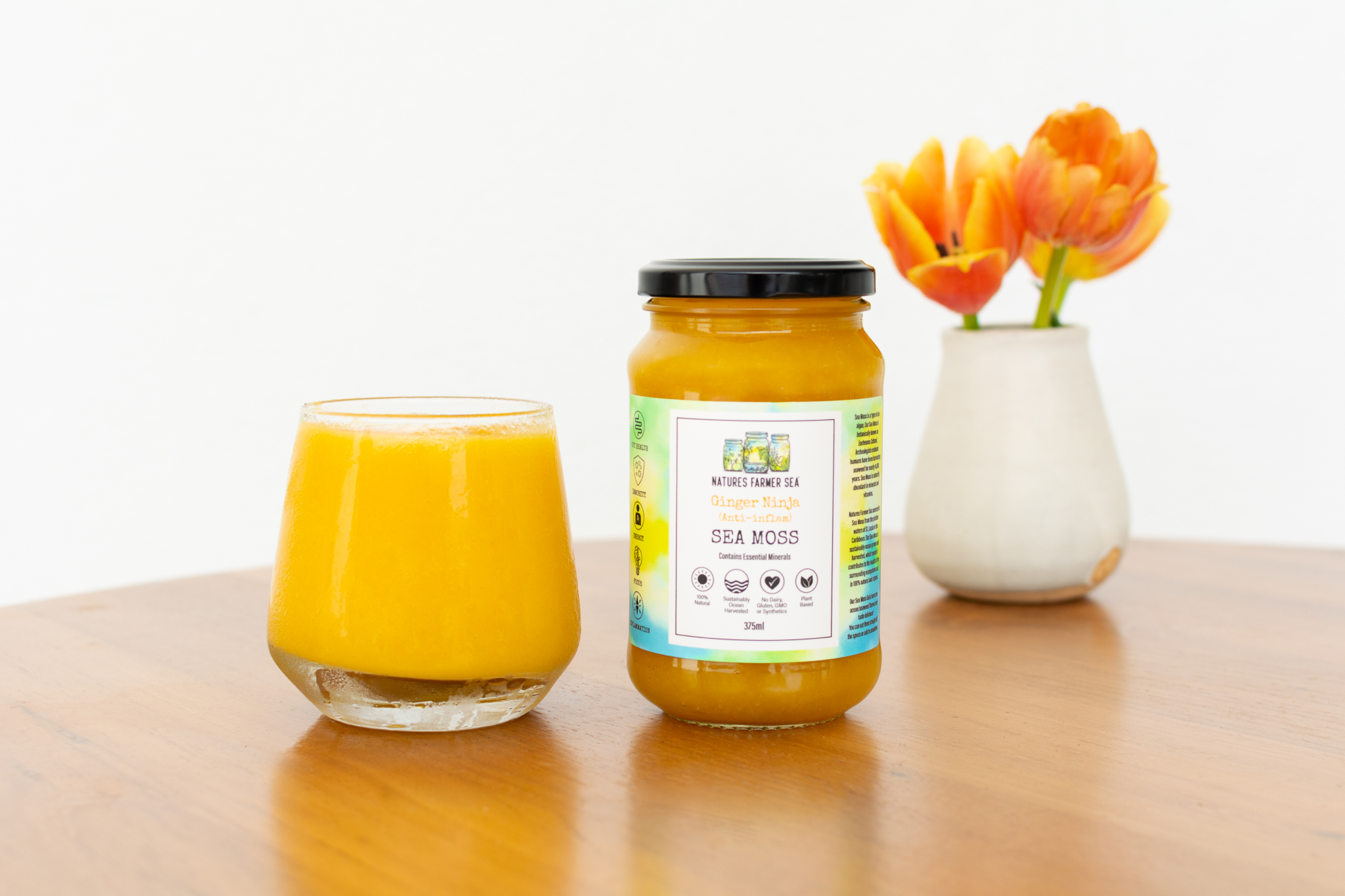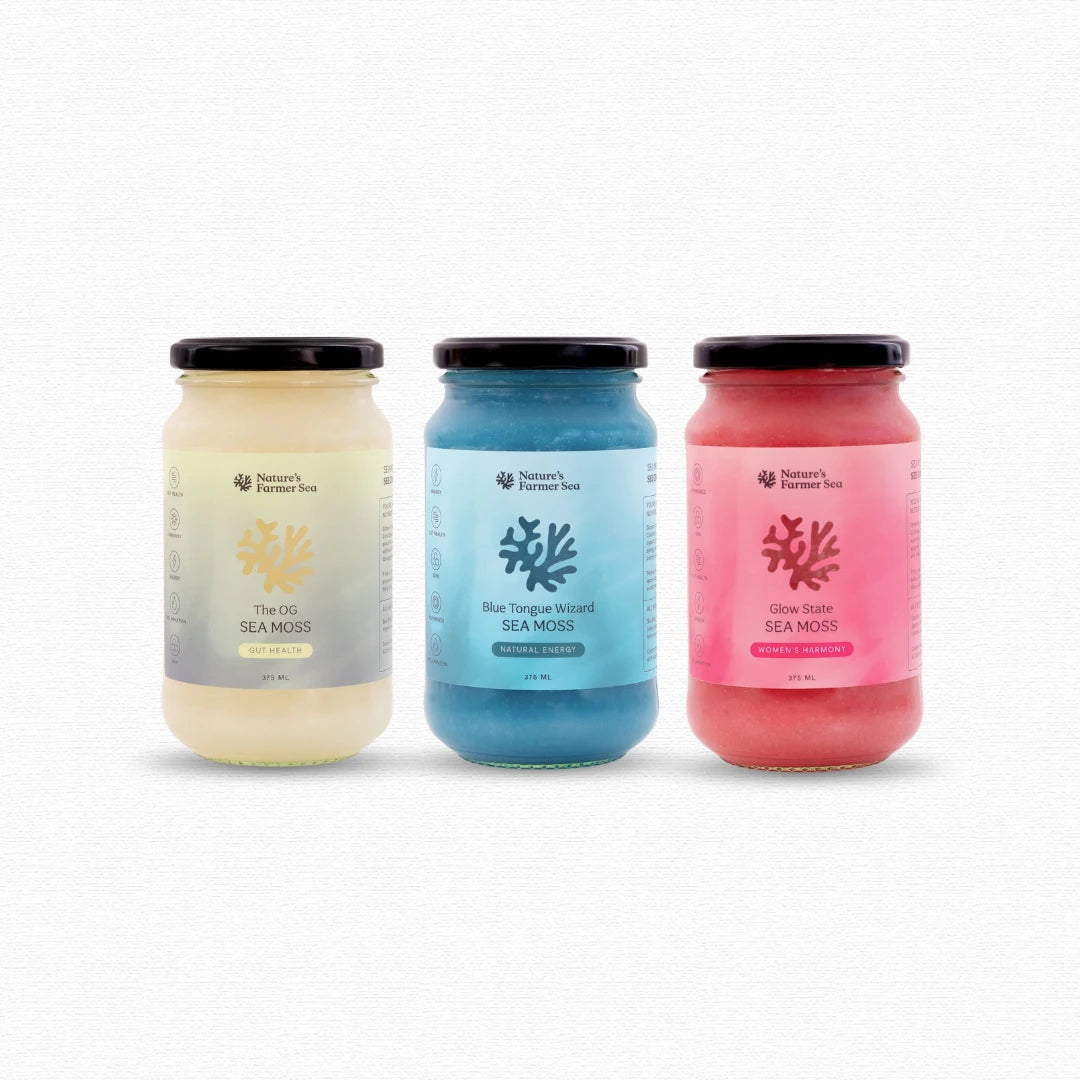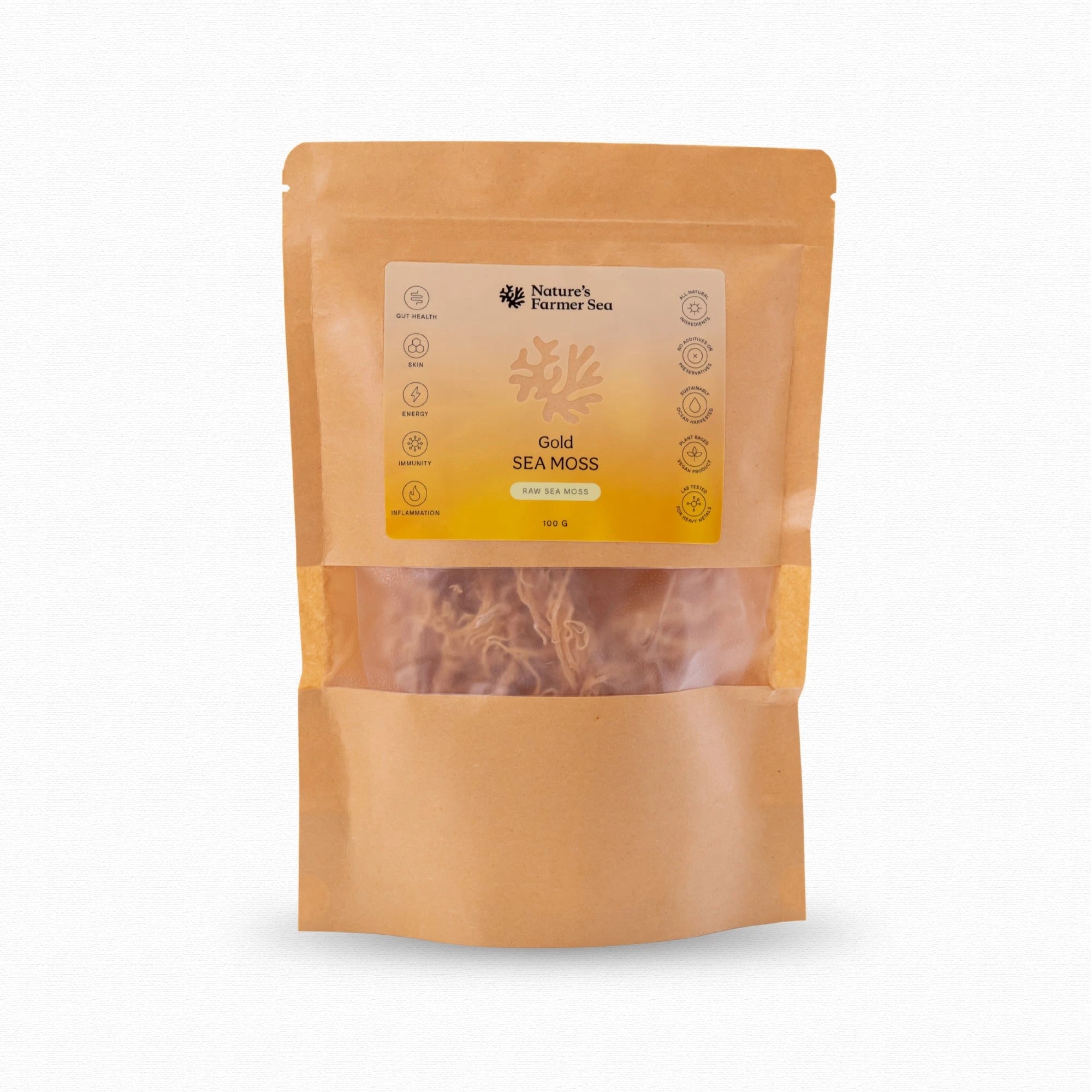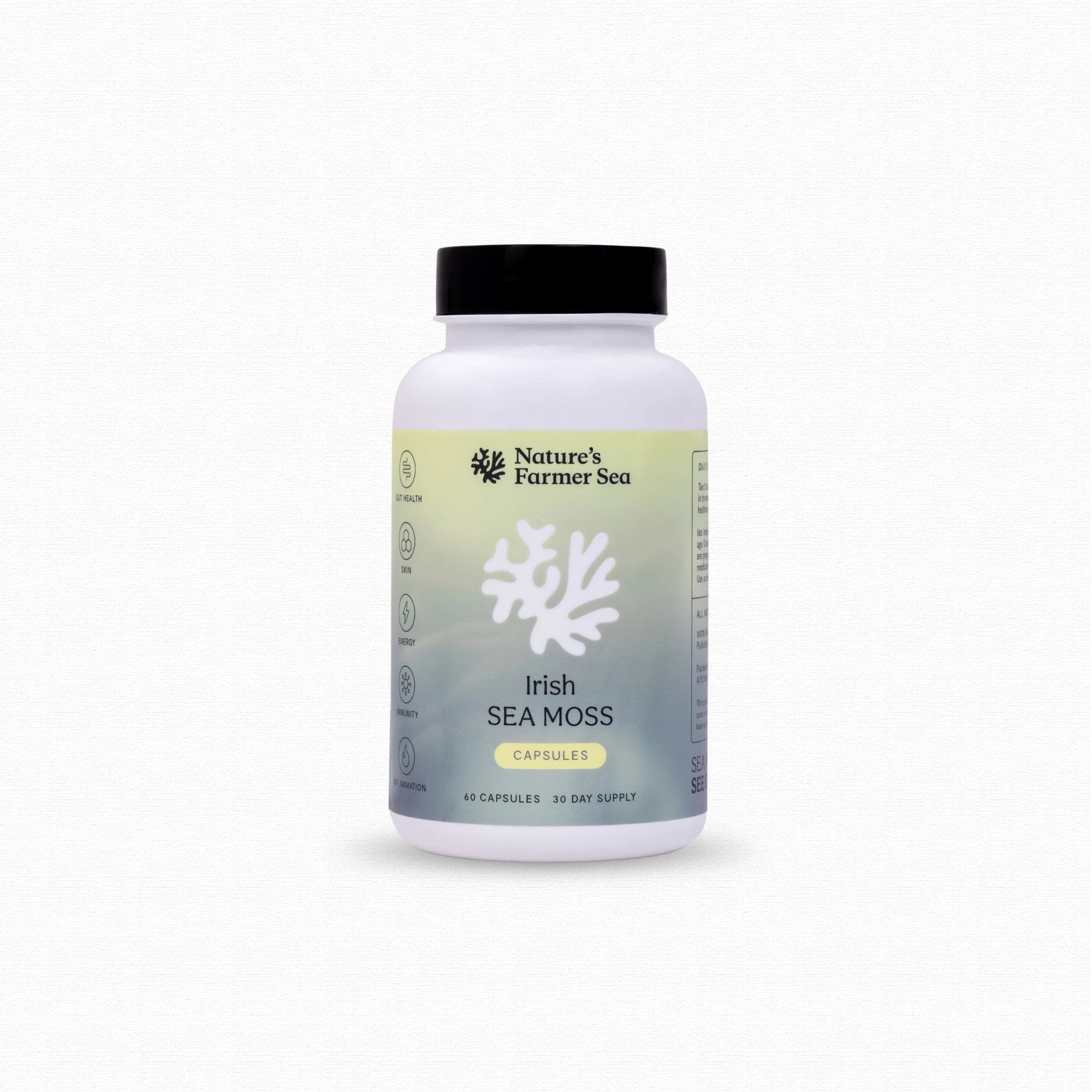Eucheuma Cottonii & Ulcerative Colitis
Ginger Ninja Flavour Sea Moss Gel
Learn more about Sea Moss Benefits for Ulcerative colitis.
(UC) is a chronic inflammatory bowel disease characterised by inflammation in the large intestine and rectum often resulting in bloody diarrhoea, mucus in the stool, abdominal pain, weight loss, and colon shortening. UC develops due to an abnormal inflammatory response in genetically susceptible individuals. This
may be triggered in response to chronic stress, infectious agents that disrupt immune regulatory mechanisms such as gastroenteritis, non-steroidal anti-inflammatory drugs such as ibuprofen or aspirin, or bacterial dysbiosis from antibiotic use, excess alcohol or processed/refined dietary choices. These factors may initiate either directly or indirectly cause intestinal damage.
Throughout the gastrointestinal tract, we have a protective mucous layer called mucin that provides lubrication to facilitate the passage food, protects our epithelium (the cells lining our gastrointestinal tract) pathogenic microorganisms and pathogens from causing dysbiosis, and other environmental irritants. Sea Moss Benefits (Eucheuma cottonii) has been shown to provide protection for the colon by up-regulating mucin production to provide protection for the mucosal layer of the gut, in which both quantity and quality is compromised in UC.
Due to the intestinal epithelium being compromised in UC, this allows penetration of microbes and bacteria through the gut and triggers immune cell activation, specifically of CD4+, CD8+ T tells, and regulatory T cells. This then increases circulating inflammatory mediators that promote damage to the mucosal layer of the gut, epithelial injury, and exacerbations of colon shortening. These characteristic inflammatory mediators are tumour necrosis factor (TNF) and interleukin-6 (IL-6). Sea Moss has been shown to increase the number of crypt cells in the mucosal layer of the gut, which provides a higher cell turnover
rate to facilitate the intestine aid functioning as a protective barrier and increase nutrient uptake from our diets. Through reducing these inflammatory mediators, Sea Moss Benefits has also shown merit in being protective against colon shortening associated with ulcerative colitis, that can lead to poor nutrient absorption, diarrhoea, and potential deficiency states.
Faecal calprotectin is a protein biomarker measured in stool analysis which is a strong indicator of inflammation in the intestines, having strong correlations with inflammatory bowel diseases such as ulcerative colitis. Sea Moss is primarily composed of kappa carrageenan which is a source of soluble fibre that attracts water in the colon and turns into a gel like substance during digestion to slow absorption in the gut, in addition to acting as prebiotic fuel to feed our beneficial gut microbiome. Incorporating soluble fibre sources such as Sea Moss is therefore important in UC due to positively altering the composition of the intestinal microflora towards more protective bacterial species, and consequently modulating systemic and mucosal immune responses that exacerbate inflammatory mediators.
Sea Moss Gel Benefits
Sea Moss can therefore aid individuals suffering from ulcerative colitis through up-regulating the protective mucous layer of the gut, reducing markers of inflammation in the gut, providing prebiotic fuel for beneficial bacteria, and modulating immune responses that can exacerbate UC flare-ups.
Related tag: sea moss capsules
References
Niu, W., Chen, X., Xu, R., Dong, H., Yang, F., Wang, Y., ... & Ju, J. (2021). Polysaccharides from natural resources exhibit great potential in the treatment of ulcerative colitis: A review. Carbohydrate Polymers, 254, 1-14.
Sudirman, S., Hsu, Y. H., He, J. L., & Kong, Z. L. (2018). Dietary polysaccharide-rich extract from Eucheuma cottonii modulates the inflammatory response and suppresses colonic injury on dextran sulfate sodium-induced colitis in mice. PloS one, 13(10), e0205252
Besednova, N. N., Zaporozhets, T. S., Kuznetsova, T. A., Makarenkova, I. D., Kryzhanovsky, S. P., Fedyanina, L. N., & Ermakova, S. P. (2020). Extracts and marine algae polysaccharides in therapy and prevention of inflammatory diseases of the intestine. Marine Drugs, 18(6), 289.
Grondin, J. A., Kwon, Y. H., Far, P. M., Haq, S., & Khan, W. I. (2020). Mucins in intestinal mucosal defense and inflammation: learning from clinical and experimental studies. Frontiers in immunology, 11, 2054.
Anyanji, V. U., Mustapha, N. M., Lim, S. L., & Mohamed, S. (2015). Seaweed (Eucheuma cottonii) reduced inflammation, mucin synthesis, eosinophil infiltration and MMP-9 expressions in asthma-induced rats compared to Loratadine. Journal of Functional Foods, 19, 710-722.
Wong, W. Y., Chan, B. D., Leung, T. W., Chen, M., & Tai, W. C. S. (2022). Beneficial and anti-inflammatory effects of formulated prebiotics, probiotics, and synbiotics in normal and acute colitis mice. Journal of Functional Foods, 88, 104871.
Article and Research by Alicia Bevc.





